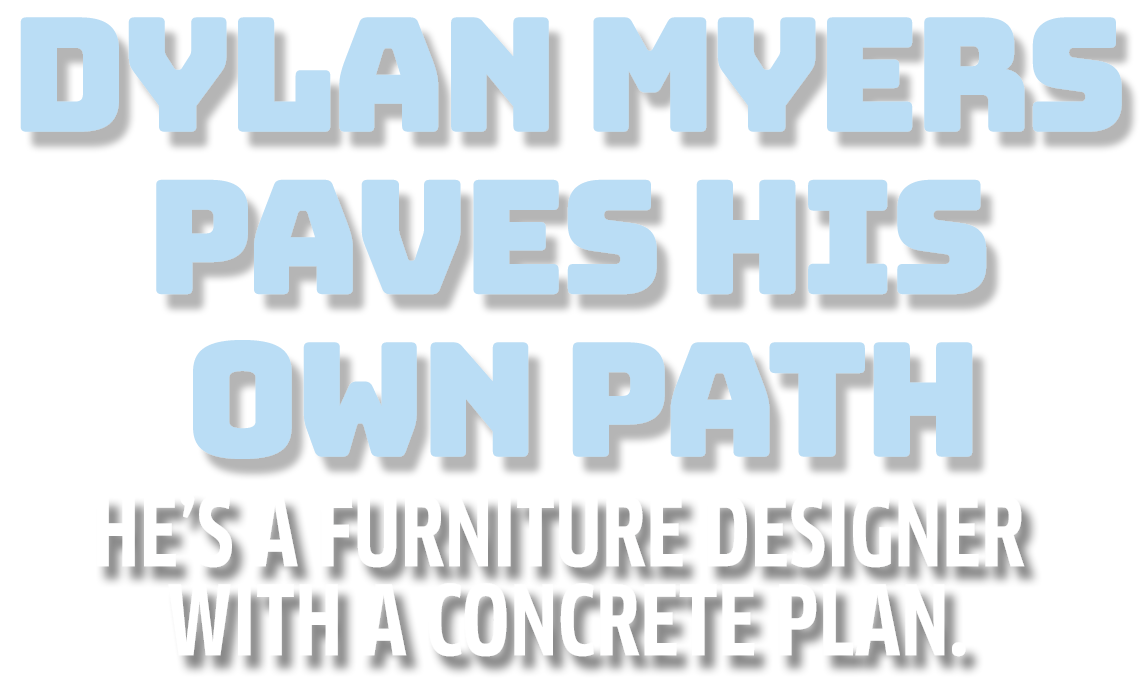
Arts & Culture
Dylan Myers Paves His Own Path
Dylan Myers is a furniture designer with a concrete plan.
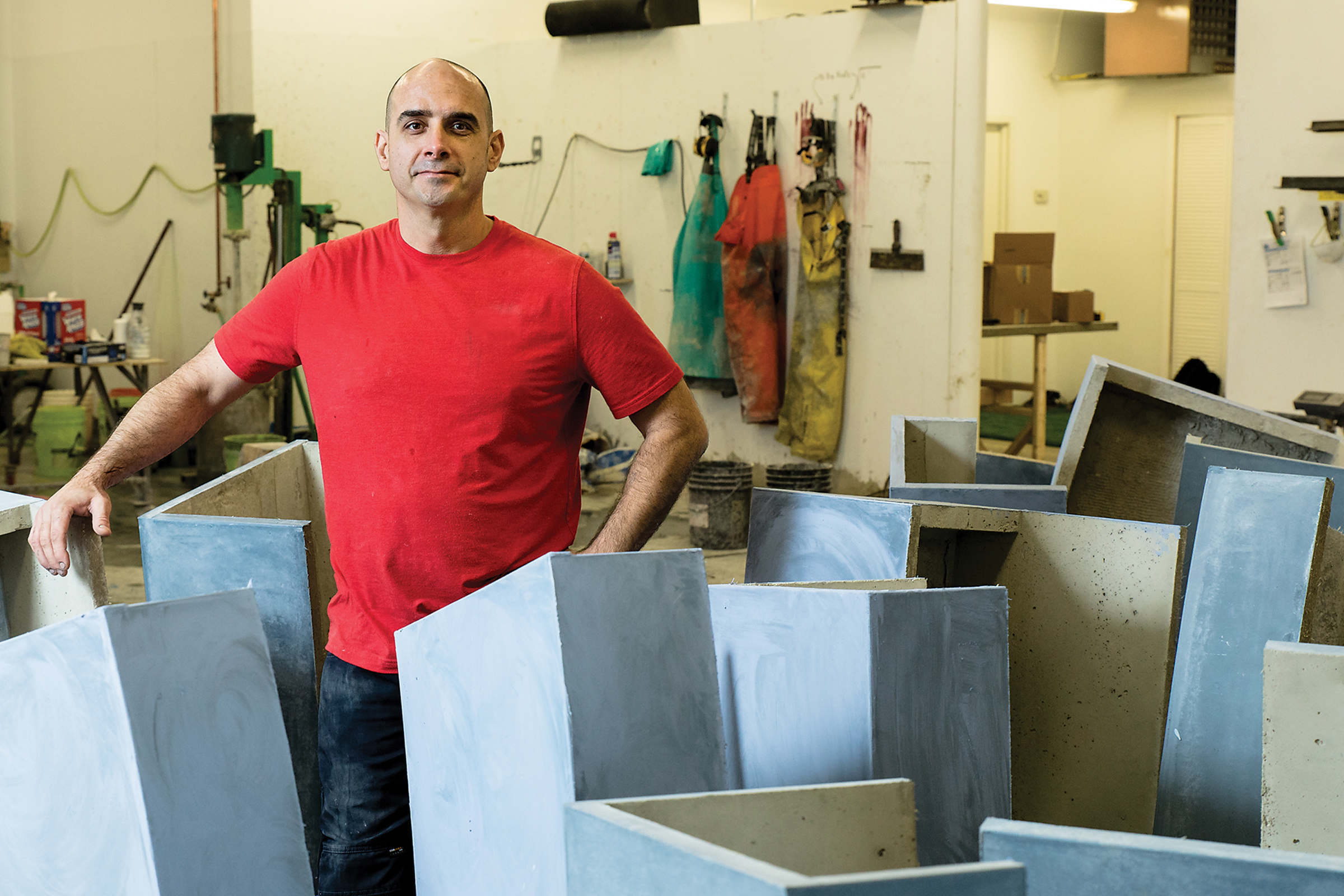
D ylan Myers often goes about designing a piece of furniture in the same way he goes about planning his life and business—with no formulaic process or blueprint in mind, but simply from inspired thought.
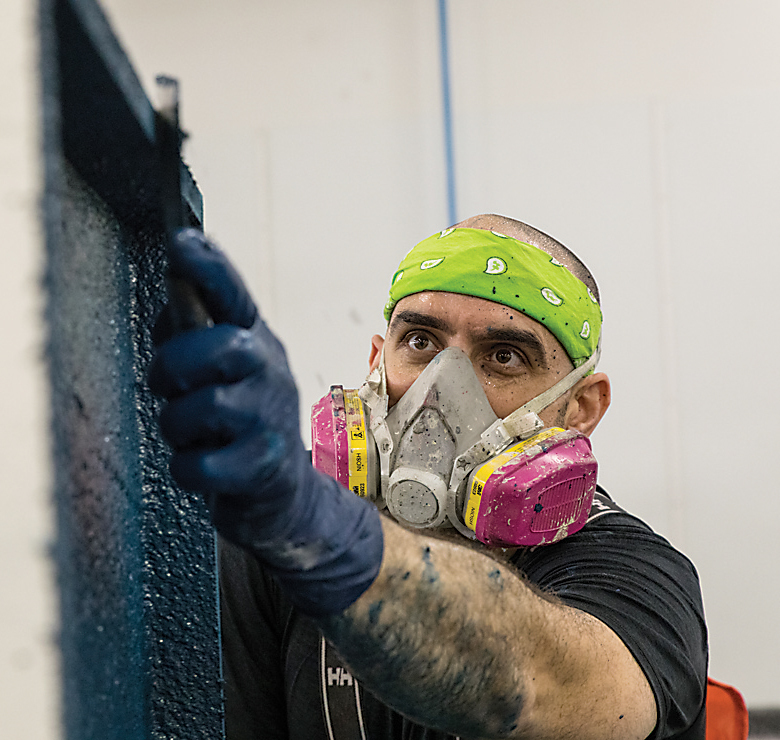
“Stuff just comes to me,” he says, standing inside his new studio in Elkridge. “I get inspiration from weird, random places.”
While this is the story of Dylan Myers Design, a company specializing in concrete furniture, it’s also the story of faith and perseverance. If anyone could start over at age 40 and build a business from scratch, it’s Myers. He has that sort of dogged determination about him, an almost maniacal energy that seems necessary to pull something like this off. And pull it off he has.
With no prior knowledge of building concrete furniture just five years ago, he’s now getting commissions for his work from individuals and businesses up and down the East Coast—from kitchen countertops to large-scale projects, like his recent work constructing built-in tables and concrete slab stools at the Wiehle-Reston East Metro station in Virginia. And his only marketing has been Instagram (@dylan_myers_design).
While you might immediately think of concrete furniture as being bulky, ridiculously heavy, or bland, Myers’ work is none of the above. He adds custom design touches—such as glass mosaic borders—that give the pieces a creative flair. Many of the interiors are made of foam core, making their total weight on par with furniture made from more traditional materials. The external layer of concrete is usually only about three-fourths of an inch thick, sometimes even one-eighth of an inch, but his pieces give the illusion that they’re made entirely of solid concrete.
While you might immediately think of concrete furniture
as being bulky, ridiculously heavy, or bland, Myers’ work
is none of the above.
Myers makes many of the interiors out of foam core, making the new piece’s weight on par with furniture made from more traditional materials. The external layer of concrete is usually only about three-fourths of an inch thick but gives the illusion that the furniture is solid concrete.
An engineering background gave him the knowledge and skill to construct the structural components of his furniture that are hidden within the concrete. As he puts it, “If I make something, it’s gonna last forever.”
Myers, who grew up in Towson and returned to Baltimore after living out West for a while, spent the first chunk of his adult life working as a general contractor renovating houses, but when the housing market plummeted in 2008, a lot of his jobs dried up right along with it, and the work he was getting became more and more lackluster.
“I basically went from being a general contractor to a handyman overnight,” he says. “It was draining my life force. I knew there was something else out there for me to do.”
What started as curiosity grew to become a full-time business after a photo of a bench online caught his eye. It had a simple, sleek design—and cost a whopping $3,600. With a healthy amount of stubbornness, he decided to try making his own, milling down old pine from houses he’d worked on and making the legs out of concrete—which, coincidentally, he’d misidentified in the photo (they were actually made out of steel, he later realized). He used his parents’ garage as a small workshop to craft the piece.
“It just felt good, designing and making something from scratch. It was satisfying,” he says.
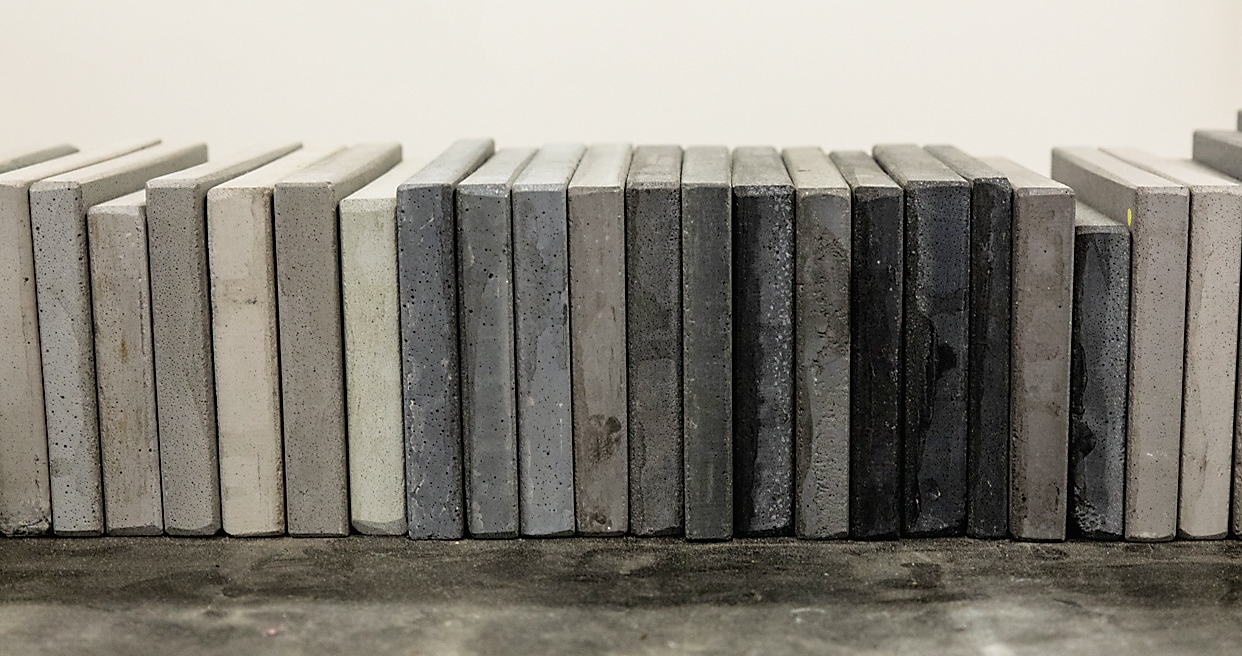
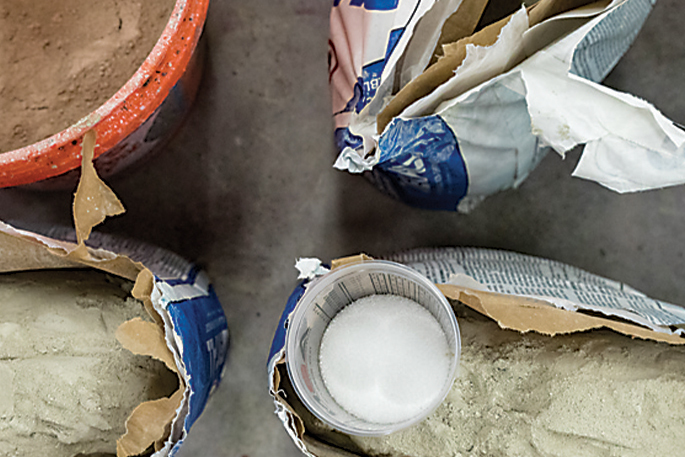
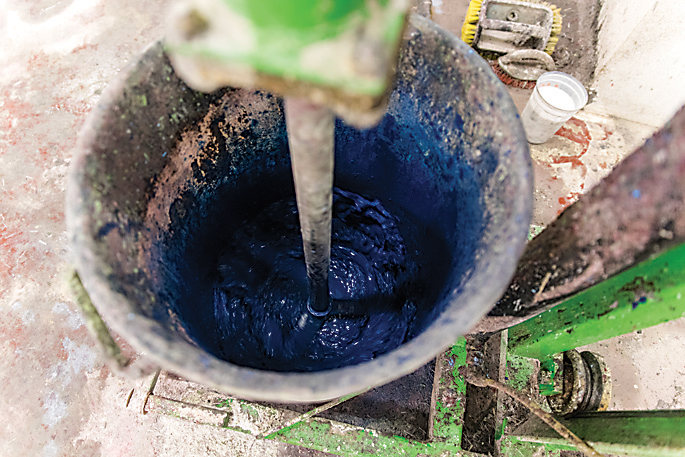
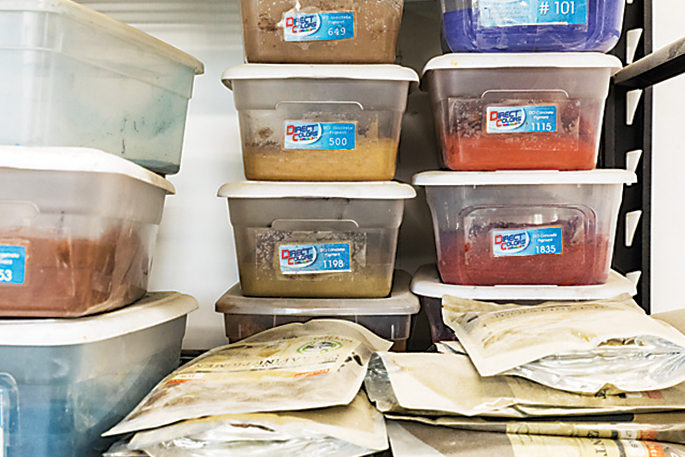
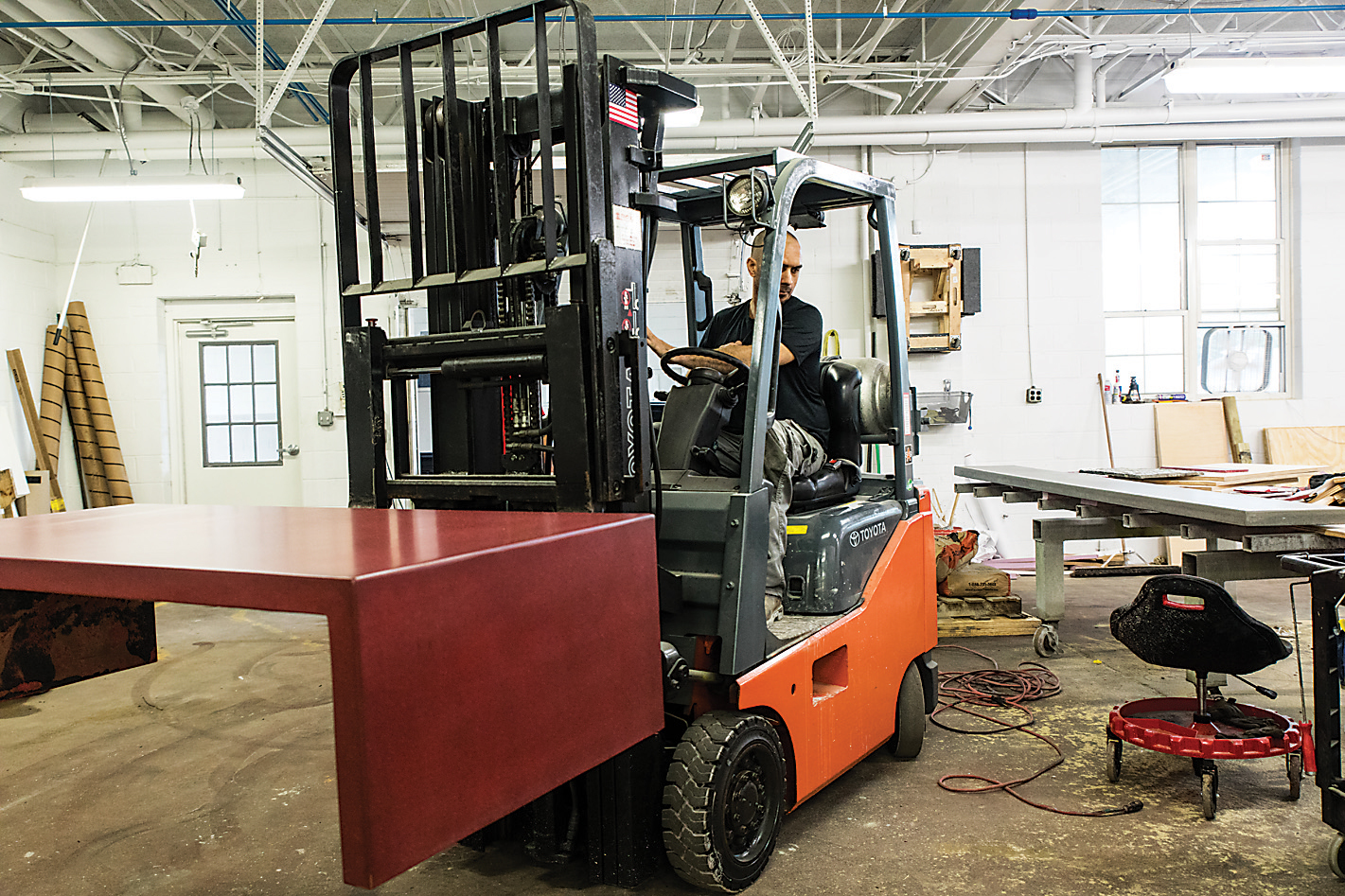
He became enamored by the process, seemingly a natural fit that allowed him freedom of creativity while working with his hands. Soon after, he took a course at the Concrete Countertop Institute in Raleigh, North Carolina, and continued building in the medium. When he woke up on his 40th birthday, he decided to dive in head first and sell everything he owned in order to start his own furniture business.
In the five years that have followed, he has also gone through a difficult breakup and a period of being essentially homeless (he was living in his former studio). He admits there were times when he’d ask himself, “Should I buy food or concrete?” Last summer, he says, he was working 24-hour shifts “like it was normal.”
But in that same year, he won first place in the countertops category at the Decorative Concrete Council’s Awards, reaffirming to him that he was on the right path.
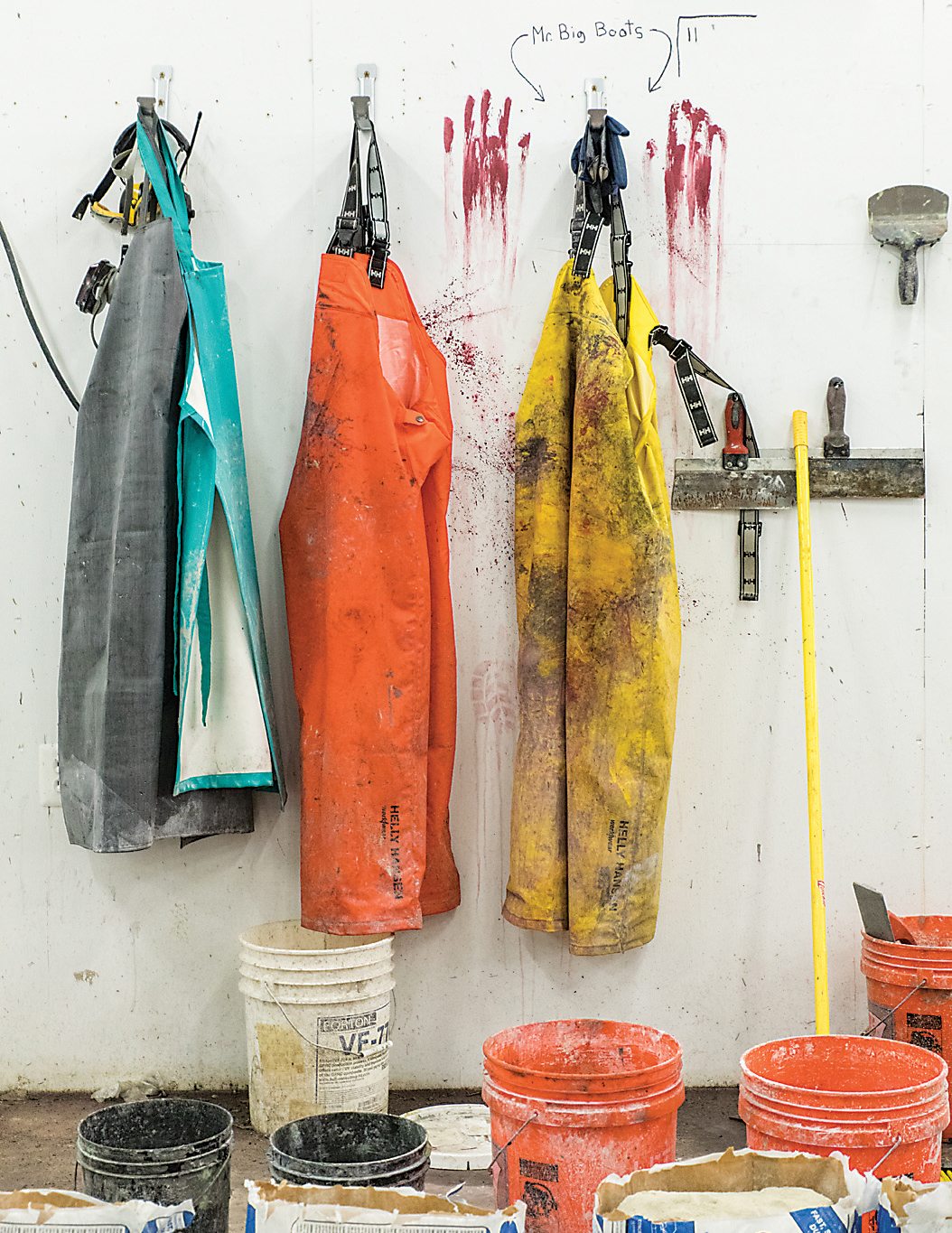
Phil Gibbs, one of the owners of the general contracting firm Hamel Builders Inc., brought on Myers for a commercial project, then later hired him to install an outdoor kitchen at his home in Annapolis, complete with a concrete countertop and a stainless-steel sink and grill.
“The concrete technology he uses is fascinating, and the quality of work is excellent,” Gibbs says.
True to Myers’ design ethos, he crafted a countertop at Gibbs’ home that’s as durable as it is visually appealing. He used white pigments to color its surface and added green and blue recycled glass to its edge.
“Concrete is a great alternative to natural stones,” Gibbs adds. “Among interior designers, it’s the en-vogue thing to use.”





